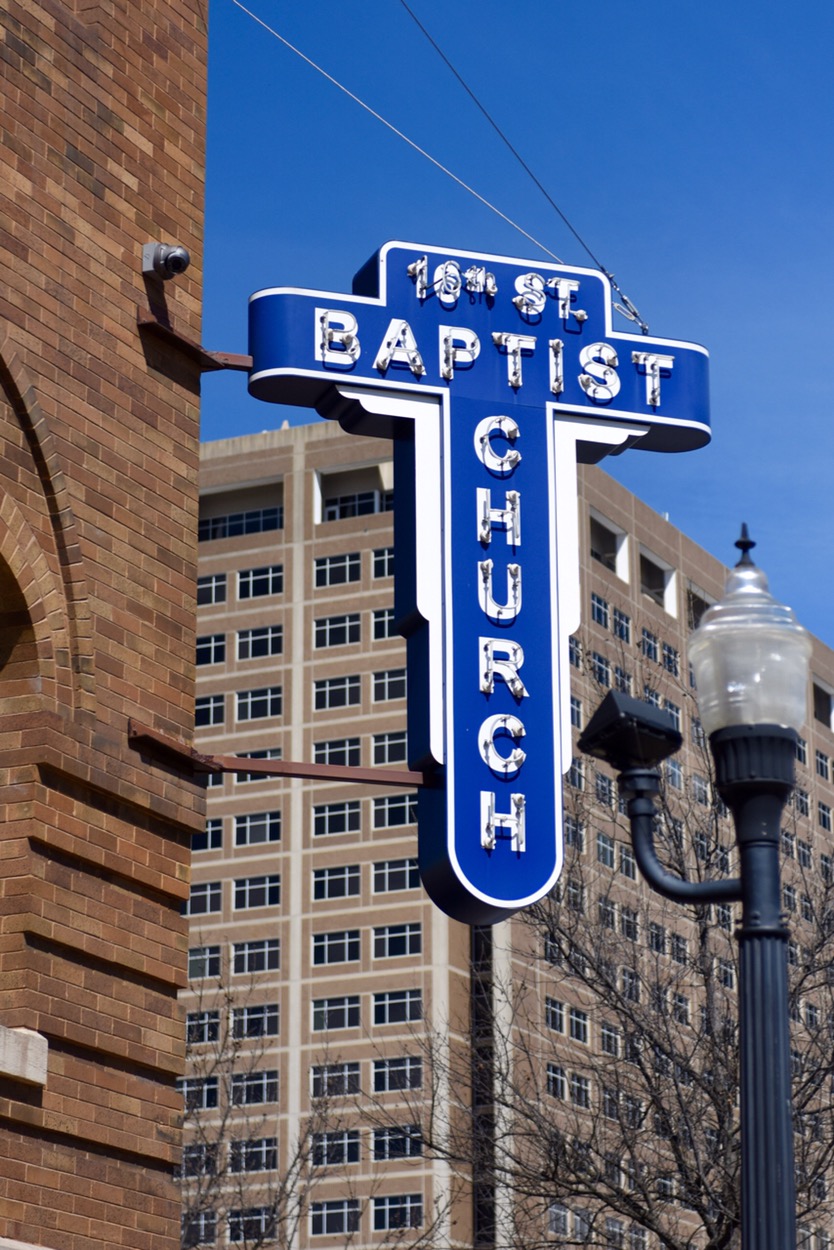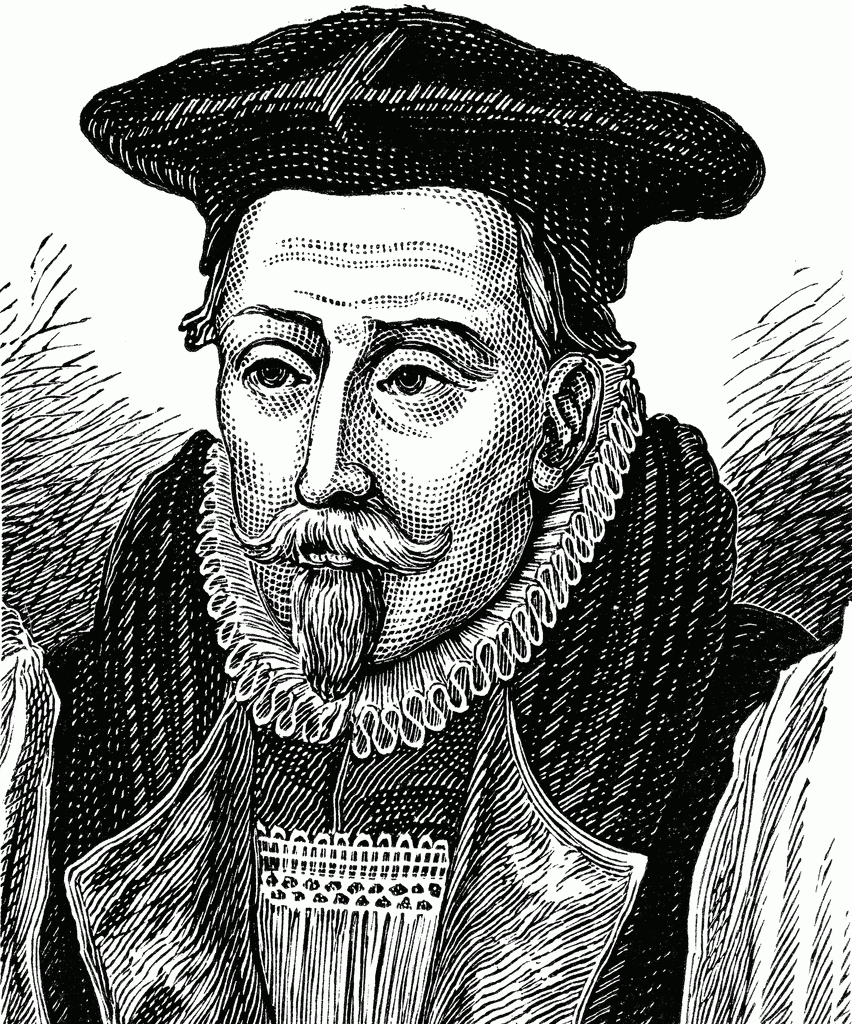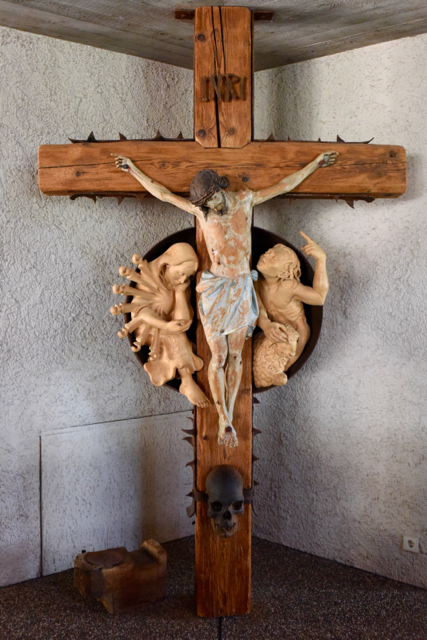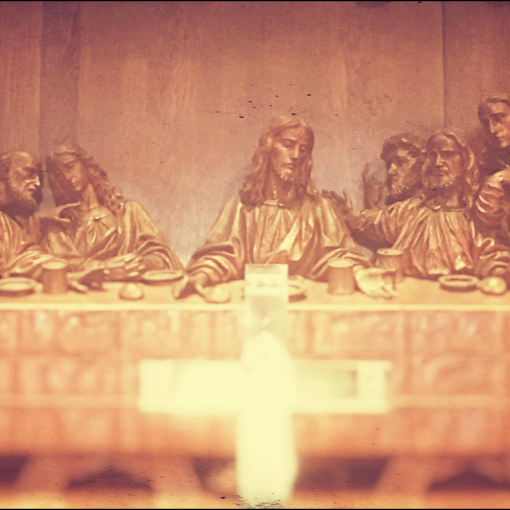I wrote this for the class blog, but thought it worth reposting here.
Every spring we take the Presidential Leadership Academy on a trip to some location to consider the leadership challenges facing that community. This year we took a different approach. We are visiting key sites of the Civil Rights Movement including Atlanta, Birmingham, Selma, Greensboro, and Washington, DC. We are only 3 days in and it has been a powerful and moving experience.
Our students will be blogging about their experiences here. I wanted to share a bit of the discussion we had yesterday regarding the fact that most of the leaders of the movement in the 50s and 60s came out of the Black church. It is an important point that is often overlooked in our teaching of the Civil Rights Movement, as demonstrated by the fact that it took so many of our students by surprise.
First, it is important to address the question of why the “white man’s” religion was embraced by first the slave community and then continued (and continues) to be of such great importance to the African-American community. While Christianity has been used to oppress others, at its heart Christianity is a religion of and about liberation. It is a message of freedom from sin, slavery, oppression, and wrong doing. The enslaved Africans transformed the “master’s” religion into a religion of liberation not only from sin and evil, but also from slavery and injustice. The suffering of Jesus also had a tremendous impact on those enslaved as well. Jesus suffered as they suffer, but his suffering led to the ultimate liberation for them. The fact that the white people who brought them this religion weren’t living up to its ideals didn’t mean they Gospel was void. As one of our students pointed out, their faith was in God not the preachers. And of course the Old Testament/Hebrew Bible narrative of the Israelites being delivered by God out of slavery of Egypt was powerful symbolism for their own slavery and oppression. The spiritual songs that continue to be sung in the Black community are often rooted in the language of Exodus.
The fact that so many of the New Testament texts in particular were conveying messages of hope in a time of persecution. In the first century people who were confessing Christians were being arrested, beaten, and killed for their faith. This resonated with the black communities from the fields of slavery to the streets of Birmingham. They were dying for their faith, just like Stephen, Peter, and Paul. Thus Paul’s letters to churches enduring persecution reminding them that the suffering of this world was short and of little consequence to the everlasting prize waiting for them in Christ provided Dr. King and the community with the strength to endure.
For example, we were at the Rosa Parks Museum in Montgomery, AL yesterday and learned of Dr. King’s “Epiphany.” It was a moment when his family was threatened with bombing if they did not move out within three days. (The house was bombed three days later, but no one was hurt.) In his book Stride Toward Freedom, Dr. King wrote
I was ready to give up. With my cup of coffee sitting untouched before me, I tried to think of a way to move out of the picture without appearing a coward. In this state of exhaustion, when my courage had all but gone, I decided to take my problem to God. With my head in my hands, I bowed over the kitchen table and prayed aloud.
The words I spoke to God that midnight are still vivid in my memory. “I am here taking a stand for what I believe is right. But now I am afraid. The people are looking to me for leadership, and if I stand before them without strength and courage, they too will falter. I am at the end of my powers. I have nothing left. I’ve come to the point where I can’t face it alone.”
At that moment, I experienced the presence of the Divine as I had never experienced God before. It seemed as though I could hear the quiet assurance of an inner voice saying: “Stand up for justice, stand up for truth; and God will be at your side forever.” Almost at once my fears began to go. My uncertainty disappeared. I was ready to face anything.”
Finally, these preachers and leaders were working in the mode of the biblical prophets. Men like Jeremiah would stand against the king and the Temple leadership pointing out their hypocrisy and calling God’s people back to obeying the Law. This Law includes caring for the widow, the orphan, and the stranger in your midst – the most vulnerable in the community, loving your neighbor as yourselves, and allowing love to be the hallmark of their faith. They then extended this same principle by holding up to all Americans not just Scripture, but the sacred texts of the United States: the Declaration of Independence and the Constitution. “We hold these truths to be self-evident, that all men are created equal, that they are endowed by their Creator with certain unalienable Rights, that among these are Life, Liberty and the pursuit of Happiness.”
This is as clear in Dr. King’s speech regarding the Montgomery Bus Boycott. He makes the equivalent clear and concludes with the refrain that is so closely associated with Dr. King and yet is actually a quote from the prophet Amos (5:24).
And we are not wrong, we are not wrong in what we are doing. If we are wrong, the Supreme Court of this nation is wrong. If we are wrong, the Constitution of the United States is wrong. If we are wrong, God Almighty is wrong. If we are wrong, Jesus of Nazareth was merely a utopian dreamer that never came down to earth. If we are wrong, justice is a lie. Love has no meaning. And we are determined here in Montgomery to work and fight until justice runs down like water, and righteousness like a mighty stream.
One of our students asked, given that we are a far less religious society (and far more diverse in what religions are observed) what language or foundational experience can we appeal to today? I don’t know, but that is one of the keys to leadership. Leaders like Dr. King and Rev. Abernathy understood that they had to find the common beliefs and experience that not only spoke to their community, but would also move those in power.
And I wonder, what do we appeal to today?






